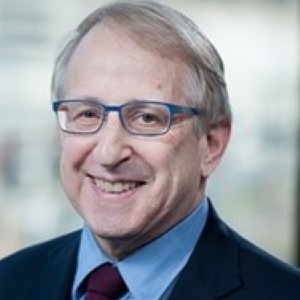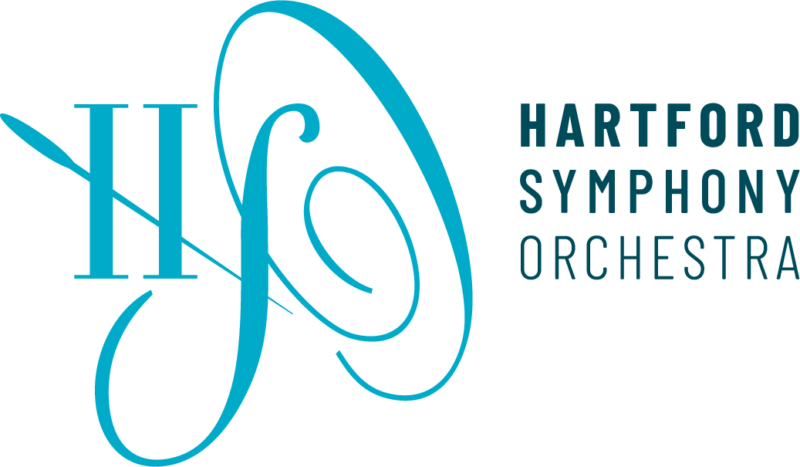
David Roth
David Roth Elected to the League of American Orchestra Board of Directors
Hartford Symphony Board of Directors member David Roth was recently elected to rejoin the board of the League of American Orchestras (LAO). David has earned a degree in history from Lafayette College, a master’s degree from the University of Virginia, and a law degree from the University of Connecticut. He is a veteran of the U.S. Army, having served as a captain in the military police. He practiced law as a partner in Levy and Droney, which is now merged into Hinckley Allen.
David currently serves as Senior Managing Director for South Ocean Capital Partners, a boutique real estate private equity firm which primarily invests alongside operating partners (i.e. developers) in opportunistic real estate assets, which was spun out from the family firm WLD Enterprises, still operating to provide investment information and advice to members of the family. The family business, originally a road building company in Cleveland, grew to encompass ownership of newspapers, cable TV networks, and real estate. Having started within the family firm, South Ocean now runs its real estate development operations for the benefit of outside investors, as well, inclding several Hartford area families.
In the nonprofit sector, David is involved with several endeavors in addition to the LAO. His term as chair of the Connecticut Children’s Medical Center and Hospitals System board is coming to an end, but he will stay on as an ex officio director, and he serves on board of the Hartford Foundation for Public Giving as well as the Bushnell Center. He has been involved with the Federation of Greater Hartford and has served on multitude of committees and as a college trustee for Lafayette College, his alma mater.
David has served on several for-profit boards, as well, including startup private companies. In public service, he has served on the Investment Advisory Committee of the State Treasurer for managing pension funds and was involved in the West Hartford Zoning and Inland Water Commission—an influencer in the development of Blueback Square—at one point serving as its chair. At the national level, David has served on the National Democratic Leadership Council and was invited to be engaged—mostly in Romania—under the SEED Act (Support for Eastern European Democracy) with the transition of Eastern European Socialist Communist economies to capitalist economies under the Clinton administration.
David was recently reelected to the board of the League of American Orchestras, and we caught up with him to ask about the League’s activities and his experience with the Hartford Symphony.
You have been involved with the League of American Orchestras (LAO) for some time. Are there particular projects or League efforts you think are especially important to organizations like the Hartford Symphony Orchestra (HSO)?
The League essentially serves as a platform for orchestras of all sizes across the country to communicate, learn, and address common issues. HSO President & CEO Steve Collins heads Group 3 and 4, as determined by budget size. The League also engages in national advocacy for orchestras, particularly active during COVID, securing funding and providing support. They also offer guidance to local orchestras on improving their advocacy efforts at the state or local level. Moreover, they analyze current trends in the orchestra world, identifying both challenges and opportunities. These include disruptions in audience behavior and preferences, which intersect with diversity and inclusion initiatives. The League aims to help orchestras attract and retain new audiences, moving away from traditional symphony audiences toward broader demographic groups. This involves programming and outreach efforts to engage a wider range of communities.
The legacy of arts organizations, including orchestras, is undergoing scrutiny and transformation. Organizations like The Hartford Foundation aim to have arts organizations broaden their impact beyond traditional audiences, fostering community inclusion and social awareness. This presents both challenges and opportunities, as it allows for reframing the role and identity of orchestras to appeal to a broader audience base. Ultimately, this shift can lead to increased support, both in terms of ticket sales and donor contributions, contributing to the long-term sustainability and mission impact of orchestras.
Can you share a bit about your personal involvement and how you became involved with the League? Have there been any projects you’ve been particularly proud of?
I initially got involved through a connection with an individual by the name of Dan Lewis, a long time and very important member of the Cleveland Orchestra who also helped establish the Symphony of Southern Florida. After meeting me and learning about my activity with the Hartford Symphony, he suggested I join the League. That was around ten years ago. During my tenure, I actively participated in discussions at board meetings and webinars, particularly focusing on issues such as financial stability and audience growth, including outreach to non-traditional audiences. This work predated the formal emphasis on diversity, equity, and inclusion (DEI). Additionally, I engaged in efforts to secure government support and expand our financial base, given the absence of a significant endowment. These challenges remain relevant today, albeit with evolving dynamics.
How do you recommend that board members, staff, and musicians engage with the League? What are the points of engagement?
Well, starting off, they can subscribe to symphony.org and gain access to basic data, webinars, and strategic planning papers. It’s a good starting point with a wealth of valuable information. As they become more involved, they can connect with people from orchestras facing similar challenges. You can discuss everything from union contracts to learning from strategies implemented by orchestras across the country. Essentially, it’s like having access to free outside consultancy to help address specific problems. At a minimum, board members should sign up for the League’s newsletter and get added to their email list.
Talking specifically about the HSO, now, you’ve been with us for years, since the late 1990s. You served as board chairman from 2004 to 2007 and again from 2010 to 2011. Of the projects in which we were involved, which do you think had the most positive impact?
I believe the most important project was enhancing our relationship with The Bushnell. Coordinating with them and becoming more efficient by sharing resources was crucial. I current serve on both boards—The Bushnell’s and the HSO’s.
Another significant project was our last capital campaign, where we raised around $10 million to address structural deficits. Unfortunately, our plans were disrupted by COVID-19. However, the overarching goal of growing audiences, donations, and endowment remains central to our vision. We constantly strive to expand our community and address issues like diversity and inclusion, ensuring everyone feels welcome at our concerts. This includes initiatives like revising audition processes to create a more diverse talent pipeline. It’s essential to acknowledge and address disparities in audience demographics. This is an ongoing focus for us and aligns with the League’s efforts to foster inclusivity and engagement within orchestral music. Personally, I’d be content if we solely played classical compositions like Mozart, Haydn, and Beethoven, but I recognize the need to appeal to a broader audience interested in diverse compositions, supporting living composers, and showcasing a more diverse set of musicians.
Years ago, a board member suggested creating a program where minority musicians could play alongside the orchestra to gain experience. This eventually led to the creation of our BIPOC musician fellowship.
The key challenges, as we’ve discussed, include achieving financial sustainability, broadening our audience base, and fostering diversity and inclusivity. We also need to explore avenues for government support. For instance, in Florida, they implemented a hotel room tax to fund the arts, demonstrating a creative approach to supporting the cultural sector without burdening residents.
Is there anything more you’d like to add, something to which you’d like to add?
I’ve had a really interesting journey. It’s gone from both ends in terms of background. My father died when I was 6 years old. He was only 45 years old. And my mother brought up my brother, myself, and my sister. On a really good day, maybe once in a while we made it to middle class, but we were low middle after my father died. We bought a house with my aunt and uncle, my mother’s sister and brother-in-law. I started working—I think I was 13—delivering newspapers. I was a paperboy all through high school. I worked in supermarkets, you know, bringing in the carts, packing the bags, mopping the floors at night. I worked on construction sites in the summers, or wherever I could get a job when I went to college. My kids, who’ve grown up in a much wealthier situation, have been very fortunate.
My background makes me much more sensitive to an understanding of how many people have to live their lives. And I always tell my kids about the time I came home one day and said, “Mom, I need a baseball glove. I want to play baseball after school. Can I get a glove?” She said, “Okay, we’ll talk about it at dinner.” So at dinner, it was my brother Sandy, my sister Amy, my grandma, and me. And she said, “David would like a baseball glove. But here’s the question and decision we have to make. If we buy that glove, that means we can’t get a pizza or go out to dinner for the next week or two.” In that way, I learned a lot about the value of money. For you (my children), what would the question and decision be? Which glove do you want?
I’ve been to wonderful places, I’ve traveled. My wife is an art historian who works at the Wadsworth. We travel in Europe. She has colleagues all over who have introduced us to beautiful things. One of the reasons I am going back on League of American Orchestra’s board—one of the things I’m focused on—is this: How do we improve the quality of life for our community and, connected to that, is my interest in music, the arts. My connection to children’s health also means a lot to me. I’m a trustee at Lafayette, and I’m happy to do it because I never would have been able to afford to go to a college like that without a scholarship. I’m grateful to have had this incredible arc of a life and to have done incredible things. Expanding quality of life improvements for our community is a significant part of so much of what I do.
It’s also the mission of the Hartford Symphony Orchestra: Our mission is to enrich lives and communities through great music.
